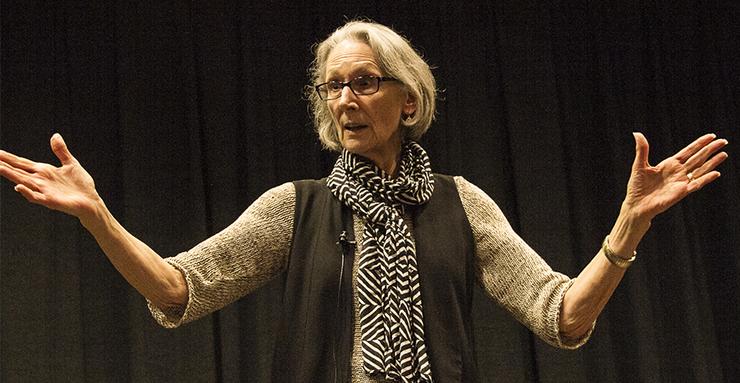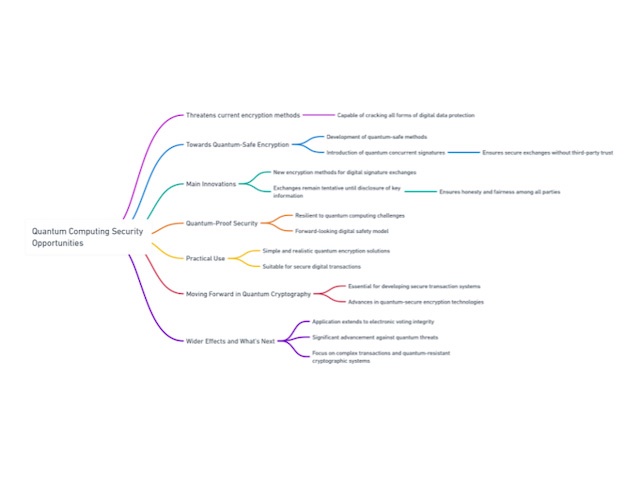Elizabeth Minnich, PhD, Discusses "The Evil of Banality"
 Association of American Colleges and Universities senior scholar Elizabeth Minnich discussed her recent book, "The Evil of Banality," during Monday's Illume Speaker Series in Warren Auditorium.
Association of American Colleges and Universities senior scholar Elizabeth Minnich discussed her recent book, "The Evil of Banality," during Monday's Illume Speaker Series in Warren Auditorium.What do we think about thinking? Is how we think important to us? How does our lack of thinking lead to evils such as genocide and economic exploitation?
These were a few themes tackled in Elizabeth Minnich’s recent, critically acclaimed book, The Evil of Banality: On the Life and Death Importance of Thinking. A senior scholar for the Association of American Colleges and Universities and a professor of moral philosophy at Queens University of Charlotte (N.C.), Minnich was invited to campus as part of the University of San Diego's Humanities Center and the College of Arts and Sciences’ Illume Speaker Series on March 18 to discuss her ideas and answer some questions.
Her book tries to uncover what happens in the minds of ordinary, neighborly people going about their daily pursuits when they turn into the diligent workers required to carry out intricate processes of evil such as genocides, slavery, deadly economic exploitation, and human trafficking. One answer she offers is that “people not thinking are capable of anything.”
She explained the background of “the evil of banality” as a re-visitation of the concept ‘the banality of evil’ coined by her teacher Hannah Arendt, a philosopher and political theorist who is widely considered one of the most important political philosophers of the 20th century.
Evils such as the Holocaust, Minnich said, are horrific but the banal makes them possible. She talked about the dangers of relying on clichés, conventions, and fixed categories to explain the world for us and, instead, called for the continuous process of active thinking.
When there is an “enclosure of thought” that locks people into certain categories (Jew, Tutsi etc.), she said, people become complicit in evil.
Katherine Liverman ‘19, who read her book in her senior capstone course attended the talk and said, “I'll continue to be thinking about the way I engage with the world and the idea of turning around our realities and examining them from all angles.”
Minnich challenged the audience to engage in thinking as an art by breaking off from the typical ways of thought and maintaining joy in stimulating our minds. She also posed a challenge to educational institutions to become places where thinking, not just knowing, can be fostered and facilitated. She encouraged unconventional thinking with and in front of others as practices that ought to become more common, a message suitable not only for those at USD but for society as a whole.
— Vayunamu Bawa ’19
Contact:
USD News Center
news@sandiego.edu
(619) 260-4681



